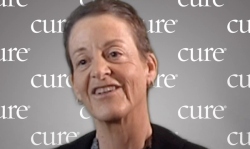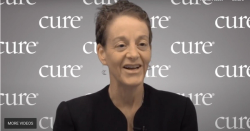- About Us
- Advertise / Support
- Editorial Board
- Contact Us
- CancerNetwork.com
- TargetedOnc.com
- OncLive.com
- OncNursingNews.com
- Terms & Conditions
- Privacy
- Do Not Sell My Information
- Washington My Health My Data
© 2025 MJH Life Sciences™ and CURE - Oncology & Cancer News for Patients & Caregivers. All rights reserved.
Avoid a ‘Recipe for Regret,’ and Become Fully Informed on Cancer Treatment Choices

Brielle Benyon, Assistant Managing Editor for CURE®, has been with MJH Life Sciences since 2016. She has served as an editor on both CURE and its sister publication, Oncology Nursing News. Brielle is a graduate from The College of New Jersey. Outside of work, she enjoys spending time with family and friends, CrossFit and wishing she had the grace and confidence of her toddler-aged daughter.
A psychologist offers three aspects to think about before making a cancer treatment or prevention decision.
There are now more cancer treatment options than ever. While this is exciting for moving the field forward, deciding on the right regimen can be overwhelming for patients, especially those with genetic mutations that can play a role in their treatments and preventative measures, explained Karen Hurley, a clinical psychologist at the Cleveland Clinic.
“Let’s start with the question, why make a decision? Why can’t you just let your physician tell you what to do? What we’ve learned over the years – both in research and also in me sitting in a psychotherapy room with many people over the years – is that if the decision does not come from you, it can actually foreclose on the mental processes that are going to carry you through making the decision on how things turn out,” Hurley said in a recent presentation at the 12th Annual Joining Forces Against Hereditary Cancers Conference.
Hurley said that this is particularly true for surgical decisions, like a mastectomy. If an individual gets a mastectomy that they did not truly want, they can have regrets or develop mistrust with the health care team that they feel pressured them into the procedure.
“Given that with hereditary cancers you stay with (the health care system) throughout life, that means that you will need to be engaged with the health care system in an ongoing way. This can have a ripple effect down the line for other decisions that you may need to make in the future.”
Being fully informed is key in making good decisions.
“If you fast forward past that, it is a recipe for regret,” Hurley said, though she did acknowledge that the influx of information can make people feel burdened. However, that is part of the road to empowerment, she said.
Treatment decisions can be particularly rough for patients who have a genetic risk to cancer, because they not only have to make immediate decisions about their current cancer diagnosis, but they also must think about the potential of other cancers developing in the future, too.
“When people are dealing with a diagnosis, they often go into what I call a ‘battle mind,’ being very mission-focused… this mentality can help you through treatment because of the nature of genetic risk decisions that you need to think about not only (with) the immediate cancer, but maybe the risk to other organs or other decisions that need to be made.”
Hurley recommended a three-step process to treatment decision making.
- Collect and understand all the relevant information.
- Deal with what it feels like to have to make this decision and how it fits into other important aspects of life.
- Determine if there is enough support needed to make this decision, such as who will be there to help with recovery.
“When you have to make a big decision about some aspect of cancer risk, it does require that you try to focus on yourself and that you are able to say what is important to you, how you feel about this and how you can share this with your providers,” Hurley said.
For more news on cancer updates, research and education, don’t forget to subscribe to CURE®’s newsletters here.
Related Content:



